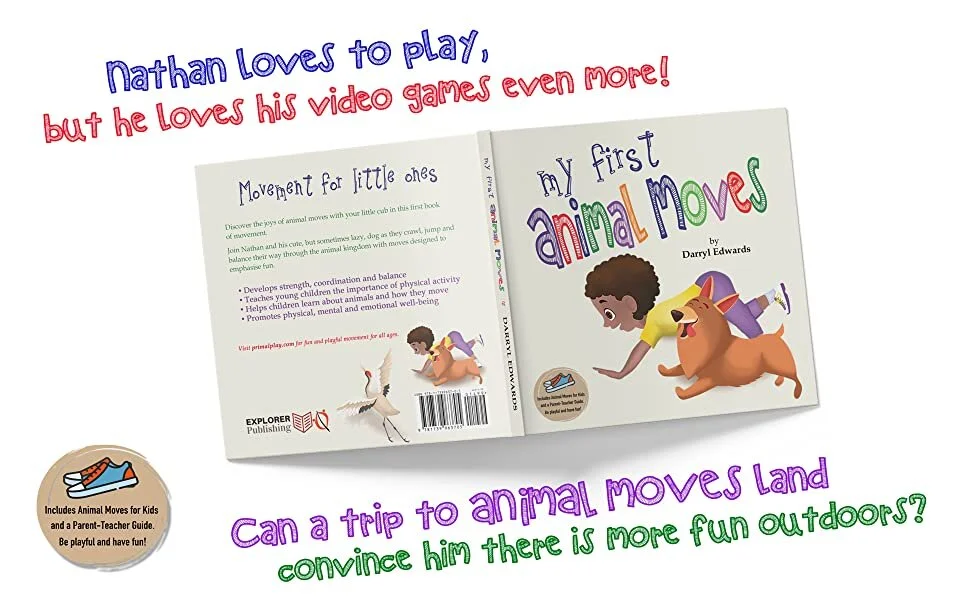7 Benefits of Outdoor Play For Children
Why Active Play is Great For Kids
7 Benefits of Outdoor Play for Kids
Did you know that 75% of children spend less time outdoors than prison inmates? Darryl discusses the scale of this problem in his ground-breaking TED Talk “Why working out isn’t working out”, viewed over a million times.
The lifestyles of children are changing all around the globe in both positive and negative ways. These changes shape current societies, and it dramatically affects our childhood experiences. For example, the time for active outdoor play is increasingly restricted and replaced mainly by addictive gadgets leading to sedentary lifestyles with limited interaction with the natural environment.
““If we provide enough space and possibilities for moving freely, then the children will move as well as animals: skillfully, simply, securely, naturally.””
However, the current research focussing on this area has highlighted the importance of outdoor play and physical activity for children. There are various benefits of getting children involved in outdoor physical activities that not only impact children’s brain development but also enhance physical fitness, cognitive ability, emotional and social behaviour, creativity, their ability to solve problems, do experiments, and interact with people (Bento and Dias, 2017; Kemple et al., 2016).
RELATED: Why Play Is For Everyone#1. Cognitive Benefits
Exposure to outdoor play and physical activity is found to improve cognitive health in preschool-aged children. In addition, this experience is critical for overall growth and development (Malıyok, 2015).
#2. Lower Risk of Obesity
Obesity in children is a significant concern around the globe, and doctors are recommending parents cut down screen time for their children and engage them in more outdoor play and movement. For a good reason, childhood obesity could be prevented by increasing the frequency of outdoor play and monitoring the children’s eating habits (Reifsnider et al., 2020; Piccininni et al., 2018).
#3. Lower Risk of Hypertension
The involvement of children in outdoor play and physical activity lowers the chances of high blood pressure and cholesterol-related health issues, and the children who have access to outdoor activities tend to have better health than others (Malıyok, 2015).
#4. Improved Learning Ability
By promoting outdoor play, children can learn to explore natural elements like activities involving water and soil can serve as the ground for learning science, mathematics, or language. Furthermore, while playing outdoors, children become learners for themselves and teachers for the others involved leading to the development and sharing of skills to carry out challenging tasks. This keeps children physically fit and develops a sense of understanding the feelings of others and learn empathy (Piccininni et al. 2018.; Malıyok, 2015).
RELATED: Top 10 Benefits of Play#5. Improving Immunity of the Children
Interaction with the natural environment (playing in the dirt) can improve children’s immunity by exposing them to health-promoting microbes present in their environment to later protect against diseases (Bento and Dias).
#6. Emotional and Psychological Benefits
Another benefit of outdoor play is emotional and psychological wellbeing by supporting the development of safe and nurturing relationships with friends and family essential for a child’s prospects. Shouting, running and interacting with family members and pets have a proven benefit in enhancing emotional stability with learning social skills. It is imperative for children to develop skills to boost and manage stress.
According to research, play with family and friends promotes language, cognitive, social, emotional, and self-regulation skills leading to prosocial brain development required to achieve goals and avoid distractions. On the other hand, a lack of nurturing and stable relationships leads to chronic stress and disrupts the development of prosocial behaviour. At the same time, joy and communication during playtime involving children and parents are essential to regulate stress. In addition, outdoor play also improves the sensory integration skills in children (Yogman et al., 2018; Malıyok, 2015).
#7. Mental Health Benefits
A research report presented that in England, there is an estimated 695,000 children of 5-16 years old with clinically significant mental health issues that include depression, anxiety, conduct disorder, and suicidal feelings. These conditions lead to further involvement of these children in drug abuse and criminal activities. Therefore, allowing children to involve in adventurous outdoor play can help them challenge themselves, test their limits, gives them a sense of control and learn to adjust their emotions in times of uncertainty and stress (Piccininni et al. 2018.; Whitebread, 2017).
RELATED POSTS:
Time to Play!
REFERENCES:
Bento, Gabriela, and Gisela Dias. “The Importance of Outdoor Play for Young Children’s Healthy Development.” Porto Biomedical Journal, vol. 2, no. 5, No longer published by Elsevier, Sept. 2017, pp. 157–60, doi:10.1016/J.PBJ.2017.03.003.Kemple, Kristen M., et al. “The Power of Outdoor Play and Play in Natural Environments.” Https://Doi.Org/10.1080/00094056.2016.1251793, vol. 92, no. 6, Routledge, Nov. 2016, pp. 446–54, doi:10.1080/00094056.2016.1251793.Malıyok, Hicran. “Safety and Risk: Benefits of Outdoor Play For Child Education (Güvenlik ve Risk: Sınıf Dışı Oyunun Çocuk Eğitimine Katkıları).” Educational Research Association The International Journal of Educational Researchers, vol. 6, no. 3, 2015, pp. 50–62.Piccininni, Caroline, et al. “Outdoor Play and Nature Connectedness as Potential Correlates of Internalized Mental Health Symptoms among Canadian Adolescents.” Preventive Medicine, vol. 112, Academic Press, July 2018, pp. 168–75, doi:10.1016/J.YPMED.2018.04.020.Reifsnider, Elizabeth, et al. “An Ecological Approach to Obesity in Mexican American Children.” Journal of Pediatric Health Care, vol. 34, no. 3, Mosby, May 2020, pp. 212–21, doi:10.1016/J.PEDHC.2019.09.012.Whitebread, David. “Free Play and Children’s Mental Health.” The Lancet Child & Adolescent Health, vol. 1, no. 3, Elsevier, Nov. 2017, pp. 167–69, doi:10.1016/S2352-4642(17)30092-5.Yogman, Michael, et al. The Power of Play: A Pediatric Role in Enhancing Development in Young Children, Pediatrics September 2018, 142 (3) e20182058; DOI: https://doi.org/10.1542/peds.2018-2058
Time. (2016). U.K. Kids Spend Less Time Outside Than Prison Inmates, Study Says. [online] Available at: https://time.com/4272459/u-k-kids-spend-less-time-outside-than-prison-inmates-study-says/ 










